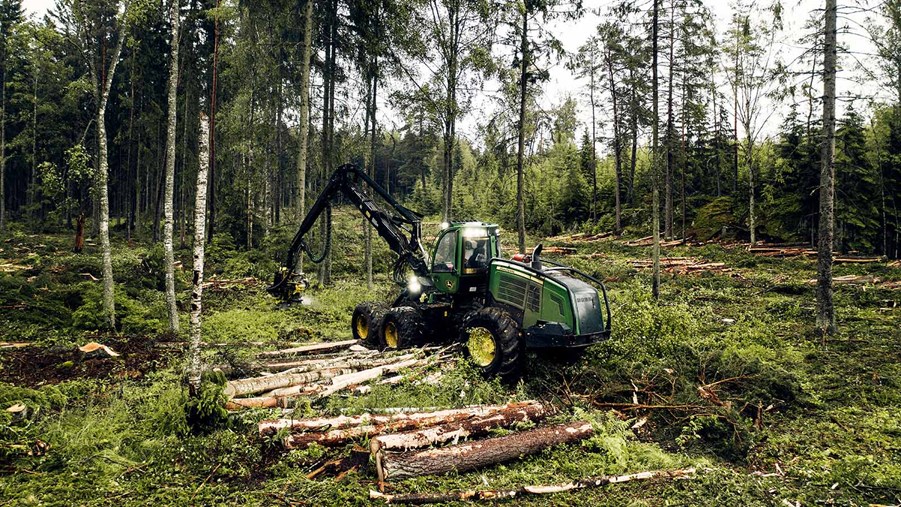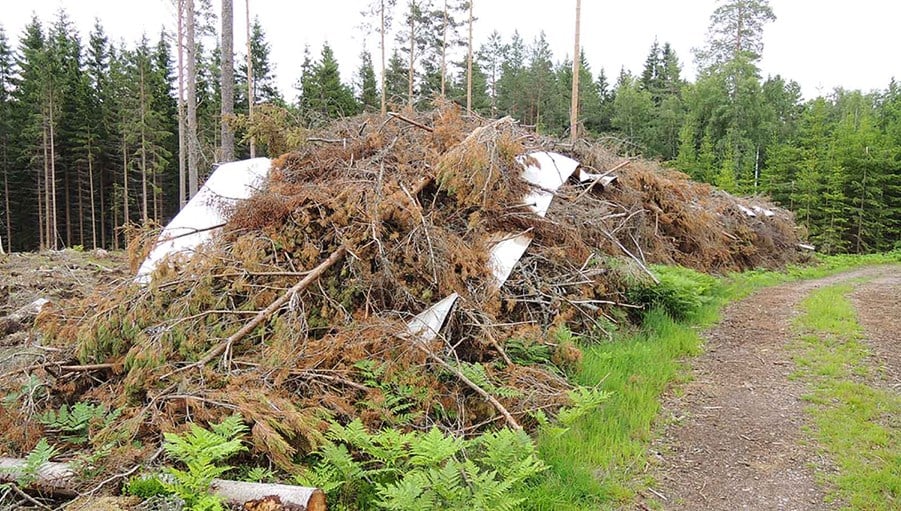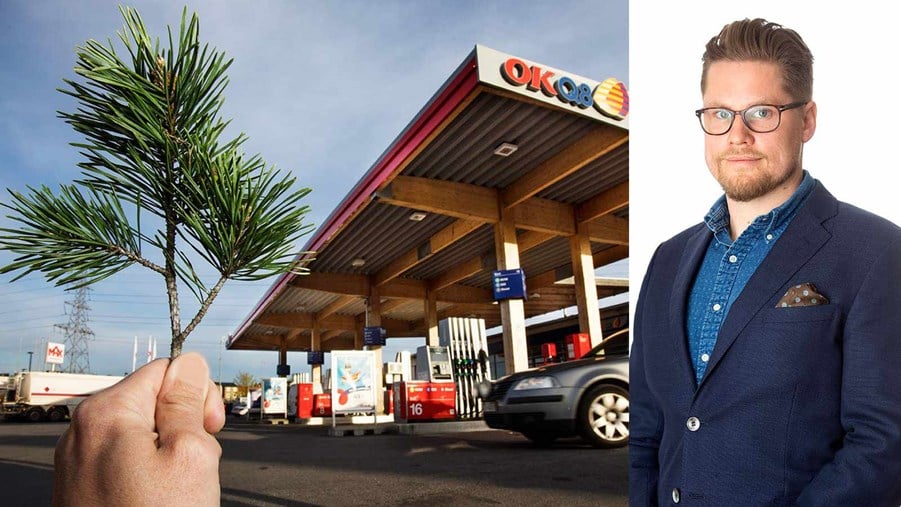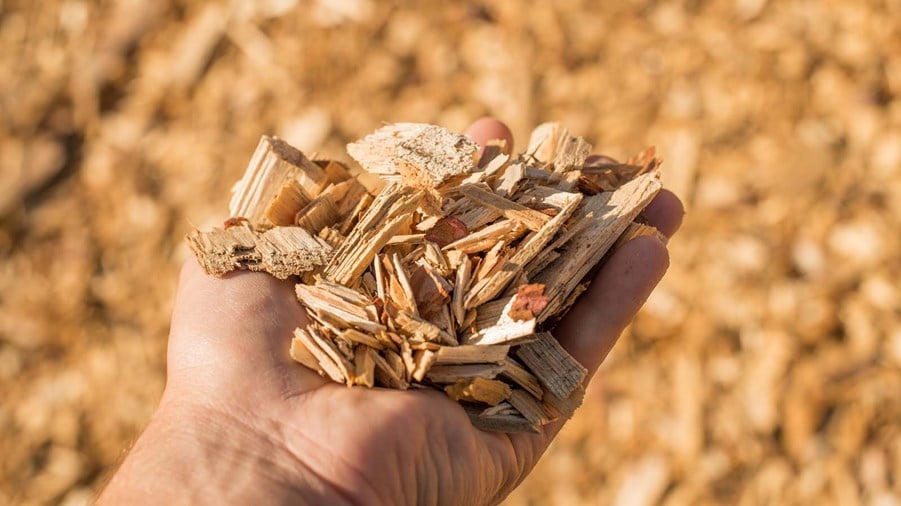
Each year, the Swedish Energy Agency funds a wide range of research projects in the field of bioenergy. “We’re working towards a sustainable energy system, and bioenergy has a clear role to play in this,” says research supervisor Mats Larsson.
The Swedish Energy Agency has overall responsibility for the energy transition in Sweden. It is also Sweden’s largest funder of research in the energy field, with bioenergy as one of six general research areas.
The agency’s investment in research linked to bioenergy includes technologies and systems for harvesting and processing fuel from forests and fields, and the environmental effects of forest fuel extraction, plus the production of fuels from both forests and fields. The research initiatives also encompass programmes relating to a refinement of the fuels.
What is the agency’s view on the future of bioenergy?
“We certainly see a positive future for bioenergy,” says Benny Fillman, research supervisor at the Swedish Energy Agency with a specific focus on cogeneration and carbon capture and storage (CCS).
His colleague Mats Larsson, also a supervisor with the main emphasis on biofuels, agrees.
“We’re working towards a sustainable energy system, and bioenergy has a clear role to play in this,” says Mats Larsson.
It is difficult to predict what future bioenergy solutions will look like, or what innovations are waiting around the corner.
“Achieving change requires so much more than just technical advances,” says Benny Fillman.
To better meet the challenges, the Swedish Energy Agency has launched a new research programme aimed at many different sectors and fields of science, with a view to creating better conditions for a broader approach.
“There are many factors that affect a transition and it’s important that we can include all these in the projects for which we grant research funding,” says Mats Larsson.
In a new venture for 2021, the Swedish Energy Agency will decide on the allocation of approximately SEK 100 million of taxpayers’ money, split between around 20 bioenergy projects that will run for four years.
“As part of the programme, we also have a special initiative for innovation clusters,” says Benny Fillman.
The purpose of clusters is to establish platforms where constellations of actors in different sectors and disciplines can network, and so stimulate innovative activities. The agency has set aside SEK 10 million for this over the period 2022–2024.
“It’s part of our job to remain as open as possible. Research is, to some extent, about keeping an open mind, rather than becoming fixated on one issue. It’s something we try to do at all levels,” adds Mats Larsson.
Plays an important part in the future
He predicts that we will see more and more bioenergy being used in aviation and shipping over the next 10 years.
“It’s all to do with electrification, at least on the fuel front. It’s a trend we’re already seeing today. As land-based vehicles turn to electricity, biofuels will be used more widely in ships and planes, since at the moment it is more difficult to cover long distances at sea and in the air on electricity alone,” he says.
In the energy field, Benny Fillman is hoping for more advanced use of resources, possibly with a focus on technical developments. Carbon capture and storage (CCS) is one line of research that is already receiving a great deal of attention, including in the bioenergy sector.
“Collaboration is a key to solving the complex challenges we’re facing – a collaboration between different actors, stakeholders and needs owners.”
“We’ve seen considerable interest in this, which gives us hope for the future, concludes Mats Larsson.
Five current research projects on bioenergy that are being funded by the Swedish Energy Agency:
-
More sustainable biomass
Exploring how to increase the production potential of biofuels by developing new, sustainable, production systems.
Project title: Mitigating environmental impacts from biomass production by producing more biomass
Period: 2019–2021
Funding awarded: SEK 989,066
Read more: Mitigating environmental impacts from biomass production by producing more biomass
-
Carbon capture
A project focusing on developing the technology to capture carbon dioxide via carbonisation. The Swedish Energy Agency judges that this project has significant potential to reduce process-related emissions and achieve negative emissions in several branches of the bioenergy sector.
Project title: Process development for carbonation-based CCS with alkaline-rich materials
Period: 2020–2022
Funding awarded: SEK 2,711,499
-
Algorithms to make bio-based heat and electricity production more efficient
This project is looking at developing self-learning instruments and algorithms that can improve the efficiency of thermal bioenergy processes via real-time measurements. The aim is to cut emissions and environmental impacts via efficiencies.
Project title: Self-learning laser-based process diagnostics for optimising bio-based heat and electricity production
Period: 2020–2023
Funding awarded: SEK 3,792,156
-
Digital platform for biofuel trading
The aim is to use blockchains to build a digital platform for biofuel trading.
Project title: Secure information flows with a digital platform for biofuels. The Swedish Energy Agency judges that the platform has the potential to make the energy market more efficient and attractive, which in turn could help to drive the transition of the energy system.
Project title: Secure information flows with a digital platform for biofuels
Period: 2020–2023
Funding awarded: SEK 1,904,000
-
More accurate calculations of bioenergy’s climate benefit
The project is focused on expanding an existing analysis tool (SweFor) and making it possible to simulate scenarios where forest production, industrial facilities, hauliers, markets and the climate are integrated. The effect would be to improve opportunities to simulate, for example, future growth, harvests, demand and substitution effects, and so obtain better calculations of the climate benefit that derives from forest bioenergy.
Project title: BioFrame – an analytical framework to promote the development of forest bioenergy
Period: 2019–2021
Funding awarded: SEK 3,395,000




